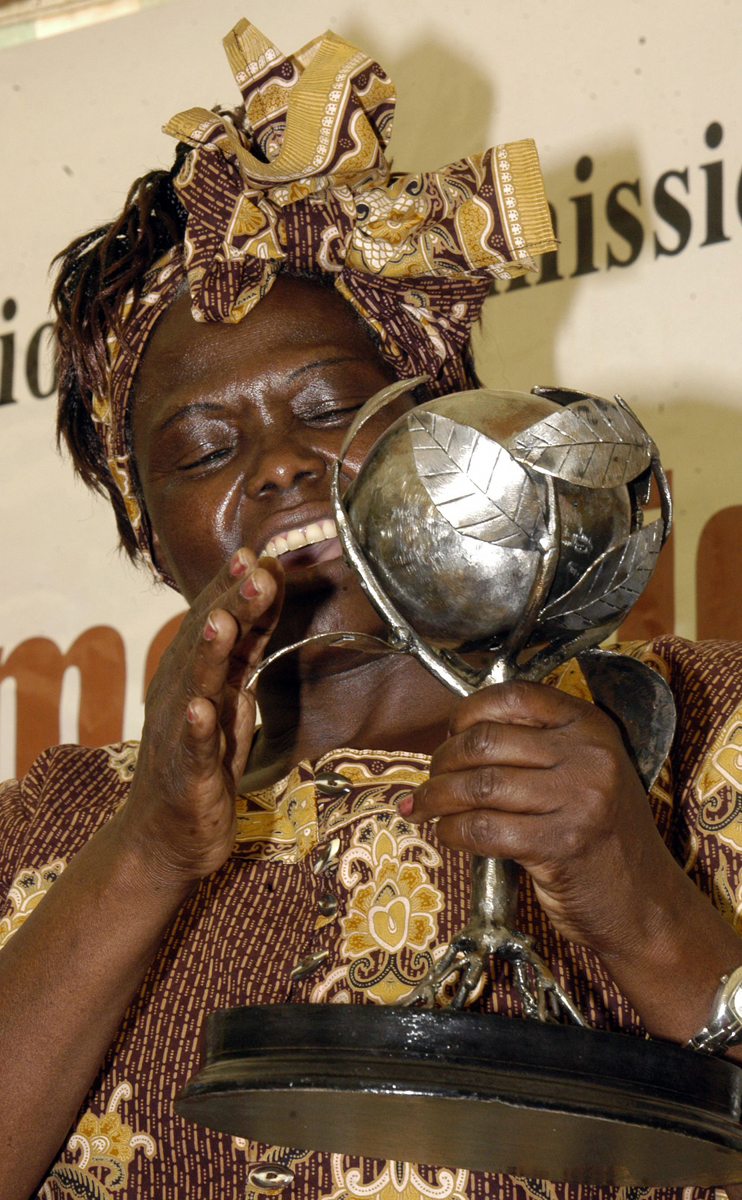When you have the environment degraded, it is always so that we are going to fight over the few resources that are left.

"Wangari Muta Maathai" was a Kenyan environmental and political activist. She was educated in the United States at Mount St. Scholastica (Benedictine College) and the University of Pittsburgh, as well as the University of Nairobi in Kenya. In the 1970s, Maathai founded the Green Belt Movement, an environmental non-governmental organization focused on the planting of trees, environmental conservation, and women's rights. In 1986, she was awarded the Right Livelihood Award, and in 2004, she became the first African woman to receive the Nobel Peace Prize for "her contribution to sustainable development, democracy and peace". Maathai was an elected National Assembly of Kenya/member of Parliament and served as assistant minister for Natural environment/Environment and Natural resource/Natural Resources in the government of President of Kenya/President Mwai Kibaki between January 2003 and November 2005. Furthermore she was an Honorary Councillor of the World Future Council. In 2011, Maathai died of complications from ovarian cancer.
More Wangari Maathai on Wikipedia.All of us have a God in us, and that God is the spirit that unites all life, everything that is on this planet.
It is important to nurture any new ideas and initiatives which can make a difference for Africa.
The privilege of a higher education, especially outside Africa, broadened my original horizon and encouraged me to focus on the environment, women and development in order to improve the quality of life of people in my country in particular and in the African region in general.
Why has there been so much secrecy about AIDS? When you ask where did the virus come from, it raises a lot of flags. That makes me suspicious.
You must not deal only with the symptoms. You have to get to the root causes by promoting environmental rehabilitation and empowering people to do things for themselves. What is done for the people without involving them cannot be sustained.
African women in general need to know that it's OK for them to be the way they are - to see the way they are as a strength, and to be liberated from fear and from silence.
We are very fond of blaming the poor for destroying the environment. But often it is the powerful, including governments, that are responsible.
Some say that AIDS came from the monkeys, and I doubt that because we have been living with monkeys from time immemorial, others say it was a curse from God, but I say it cannot be that.
Copyright © 2024 Electric Goat Media. All Rights Reserved.